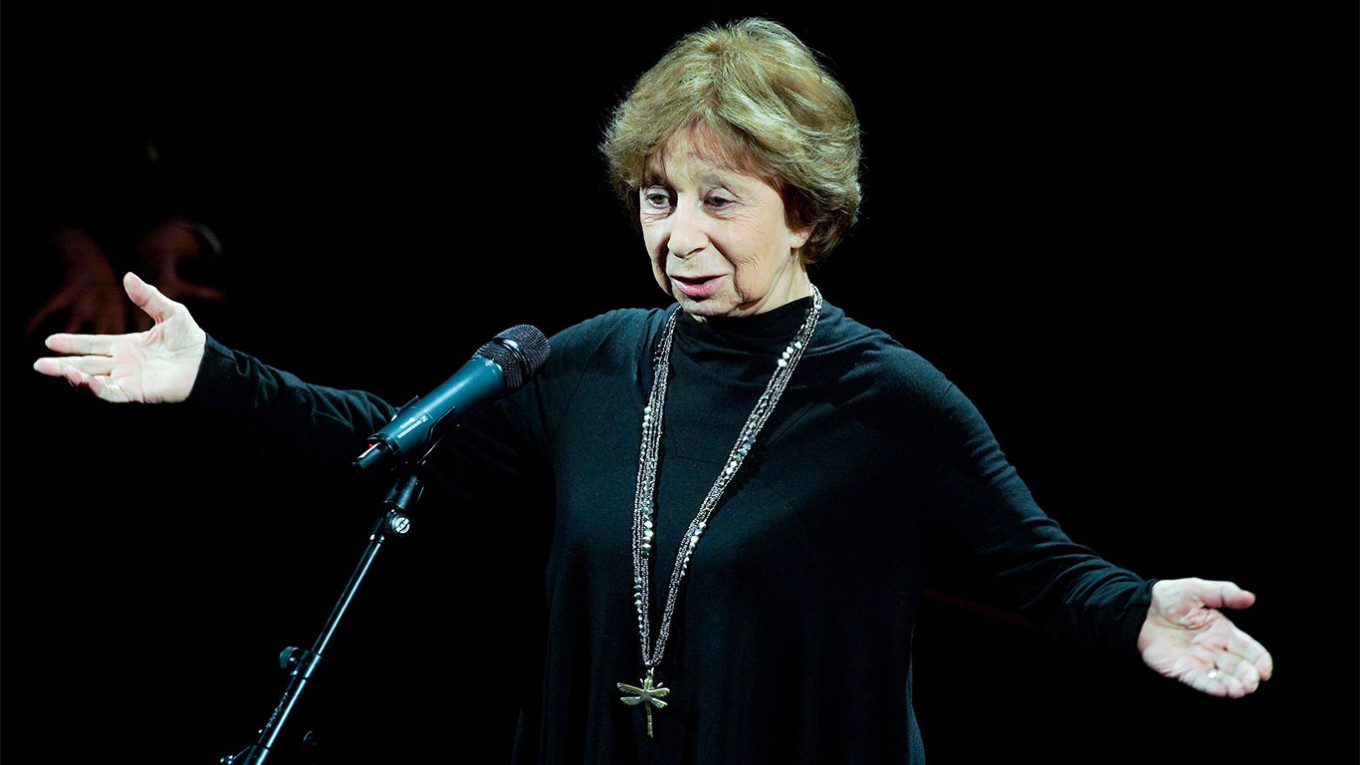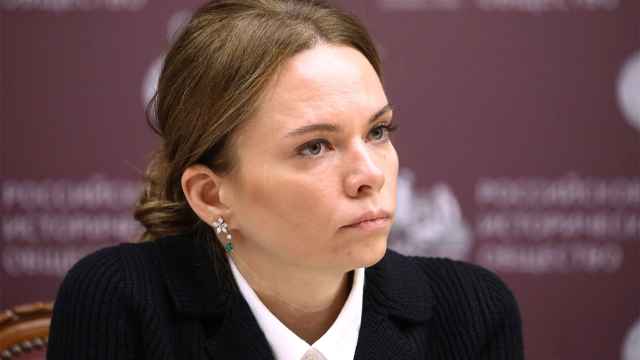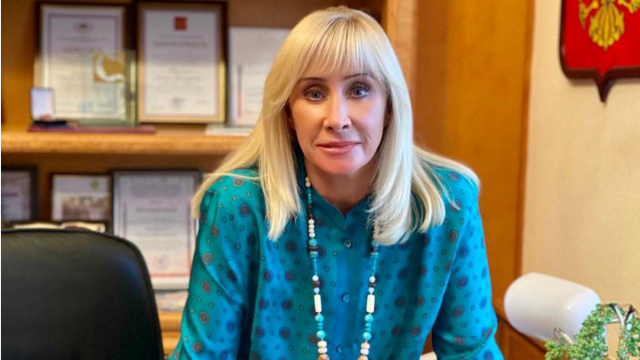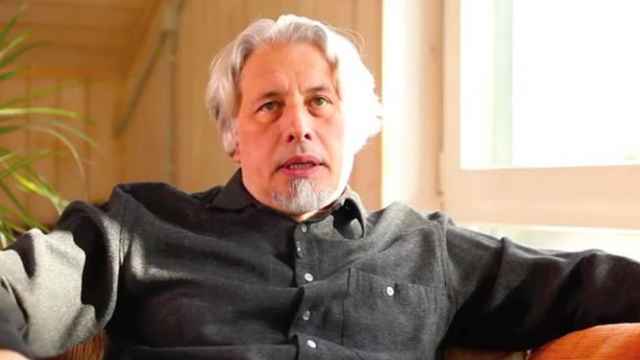The debate about how best to punish "incorrect" cultural figures in Russia — that is, those who criticize the war in Ukraine or the Kremlin — is escalating rapidly: after initially proposing to strip offenders of their Russian citizenship, State Duma deputies are now suggesting ways to remove offending actors from films altogether.
Patriotic thinking never sleeps as it is constantly generating new ideas: there’s always pressure to keep up with your fellow patriots in the competition to ban things. The more things you try to ban, the more you love Russia.
While State Duma Speaker Vyacheslav Volodin has no equals in the field — he most recently proposed confiscating property from "scumbags who have left the country and are now heaping muck on it" — there is still a fierce battle for second and third place.
State Duma deputy Dmitry Gusev suggested last month that "treacherous" actors should be named and shamed as such in film credits. This inspired Petersburg deputy Sergei Solovyov to outdo him and enjoy 15 minutes of fame with a proposal to cut scenes with treacherous actors in them altogether, though only following public discussion, of course, so that if the idea didn’t catch on he wouldn’t be held personally responsible.
State Duma deputy Elena Drapeko, herself a former actress, then added her own worthy suggestion: cuts from films already made were unnecessary, but the actors in question should never be allowed to act in state-funded films again.
This prompted the chair of the State Duma Culture Committee, Yelena Yampolskaya, to suggest that "traitors" should no longer be allowed to receive any public funding whatsoever. Building on this idea, her colleague in the State Duma, Yekaterina Stenyakina, proposed compiling a blacklist of actors forbidden to appear on state TV channels or in films receiving state funding.
"People should know who the traitors are," she said, stressing that "this is not censorship, it's simply a logical reaction to behavior that I find revolting."
She's quite right, of course, it’s not censorship. Censorship only existed in the bad old days of the tsar or the communists. It’s a hangover from the past. The Russian Constitution literally states that "censorship is forbidden," but having a "logical reaction" remains entirely constitutional. And professional patriots have always considered the federal budget to be theirs alone as if opposition members were exempt from paying taxes.
Following Stenyakina, Sergei Solovyov explained why drawing comparisons with the Soviet Union was unfair. The U.S.S.R. had an ideology, but we’re not talking about ideology here, we’re talking about traitors. This crucial difference is one so subtle that it can only be understood by those with years of experience working in the Duma who have learned how to find a loophole in any law.
As one smart person once said, the Constitution only bans state ideology, so why is national ideology not allowed?
But it appears there's no need to wait for "Stenyakina’s List" (as she would no doubt like it to be called) — the reprisals are already well underway. In mid-January, the actor Dmitry Nazarov was fired from the Moscow Arts Theater along with his wife Olga Vasilieva for publicly criticizing the "special military operation" in Ukraine. And on Wednesday, Moscow’s Sovremennik Theater announced that the award-winning actress Liya Akhedzhakova, who also happens to be a prominent human rights activist and vocal critic of the war, would no longer be performing on its stage, effectively ending the actress’s career at the theater, which she joined in 1977.
What is surprising is how the Russian establishment, having spent so much time criticizing and mocking the West's progressive values and its so-called cancel culture — which they oppose, favoring "traditional Russian values" instead — ends up arriving at the very same cancel culture themselves. The reasons for cancelation in Russia are different, of course, but its essence is unchanged. They want it and cannot do without it. We are witnessing the same desire to cleanse public life of anything that violates certain canonical beliefs.
Russia is no stranger to cancellation, however. In the Soviet era, disgraced political figures were removed from official photographs, foreign films would be cut mercilessly, and sex scenes, homosexuality, religion, or what the censors deemed to be excessive violence were all censored and removed. Books and films would be "canceled" overnight if the author or director proved to be a traitor. An actor who had left for the West could be removed from film credits, while entire scenes could be cut depending on changes in the political climate. Stalin ordered Trotsky to be removed from the film “Lenin in October,” and shortly after his death, any mention of Stalin was removed from Soviet films.
In the modern world, these measures are essentially pointless, of course. Even if something is cut, the original version can always be accessed with a little research. Russia also lacks the state machinery the U.S.S.R. had to enforce its ideology on the population. The Russian authorities' attempt to control the public space and to ensure it suits its needs at any given moment is simply a reflex common to any regime that lays claim to ideological exclusivity and thus fears the smallest murmur of dissent.
This article was first published in Russian by Noviy Prospekt.
A Message from The Moscow Times:
Dear readers,
We are facing unprecedented challenges. Russia's Prosecutor General's Office has designated The Moscow Times as an "undesirable" organization, criminalizing our work and putting our staff at risk of prosecution. This follows our earlier unjust labeling as a "foreign agent."
These actions are direct attempts to silence independent journalism in Russia. The authorities claim our work "discredits the decisions of the Russian leadership." We see things differently: we strive to provide accurate, unbiased reporting on Russia.
We, the journalists of The Moscow Times, refuse to be silenced. But to continue our work, we need your help.
Your support, no matter how small, makes a world of difference. If you can, please support us monthly starting from just $2. It's quick to set up, and every contribution makes a significant impact.
By supporting The Moscow Times, you're defending open, independent journalism in the face of repression. Thank you for standing with us.
Remind me later.








